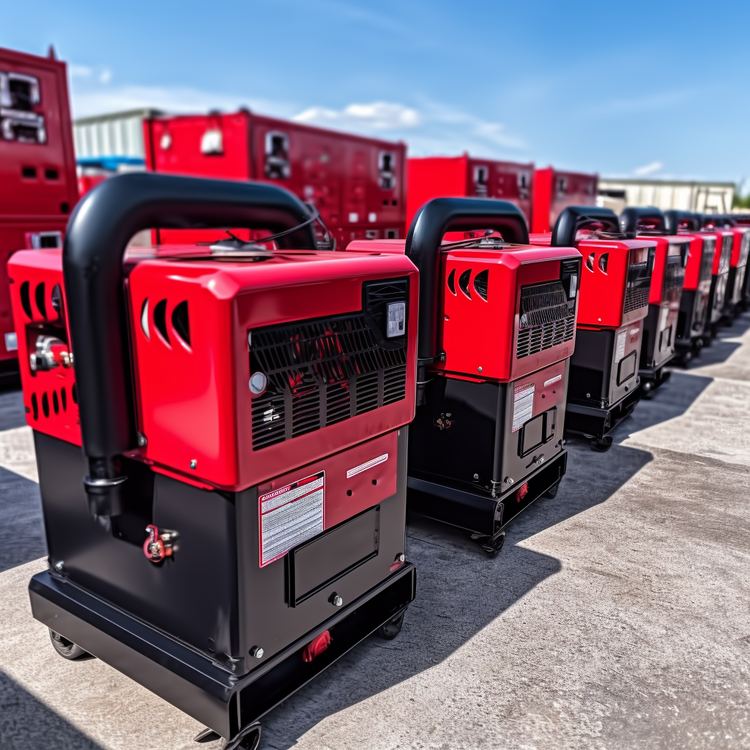
A Comprehensive Guide to Modern Backup Energy Solutions

The Evolution of Generator Technology
Generators have come a long way from their early mechanical counterparts. Initially bulky and inefficient, modern generators are now compact, highly efficient, and environmentally friendly. Advances in fuel technology have allowed for longer runtimes and quieter operations, making them suitable for both residential and commercial use. The integration of smart technology enables real-time monitoring and automated responses to power outages, ensuring a seamless transition when the main supply fails. This evolution has not only enhanced the reliability of generators but also expanded their applicability across various sectors.
Home Generators: Ensuring Comfort and Safety
For homeowners, having a dependable backup power supply is crucial for maintaining daily routines and ensuring safety during emergencies. Modern home generators are designed to automatically activate during power outages, providing uninterrupted electricity to essential appliances like heating systems, refrigerators, and medical devices. These systems are user-friendly, with easy installation processes and minimal maintenance requirements. Additionally, advancements in inverter technology have improved the quality of power generated, protecting sensitive electronics from damage. By investing in a home generator, homeowners can achieve peace of mind, knowing that their household can remain functional and safe regardless of external power disruptions.
Industrial Backup Power: Keeping Operations Running
In the industrial sector, the importance of a reliable backup power supply cannot be overstated. Factories, data centers, and other critical infrastructure rely on continuous electricity to operate efficiently and avoid costly downtimes. Modern industrial generators are built to handle large power loads and operate continuously for extended periods. They are equipped with robust features such as automatic transfer switches, advanced cooling systems, and fuel-efficient engines to ensure maximum uptime. Additionally, these generators are often integrated with energy management systems that optimize performance and reduce operational costs. By maintaining a stable power supply, industries can safeguard their operations, protect their investments, and ensure the smooth functioning of their businesses even during unexpected power outages.
Innovations Shaping the Future of Backup Energy
The future of backup energy is being shaped by groundbreaking innovations aimed at enhancing efficiency, sustainability, and user experience. Renewable energy sources, such as solar and wind power, are increasingly being integrated with backup systems to reduce dependency on fossil fuels and minimize environmental impact. Energy storage technologies, including advanced batteries, are improving the capacity and reliability of backup power, allowing for longer durations of uninterrupted electricity. Additionally, smart grid technologies are enabling more intelligent distribution and management of power, ensuring optimal performance and reducing waste. These innovations are not only making backup energy solutions more sustainable but also more accessible and cost-effective for a wider range of applications. As technology continues to advance, the capabilities of backup energy systems will expand, offering even greater reliability and versatility to meet the evolving needs of both residential and industrial users.
Ensuring Generator Reliability and Maintenance
To maximize the benefits of backup energy systems, ensuring their reliability through regular maintenance is essential. Routine inspections and servicing help identify potential issues before they escalate, ensuring that generators perform optimally when needed most. Modern generators are designed with user-friendly maintenance features, such as self-diagnostic tools and automated alerts, which simplify the upkeep process. Additionally, following manufacturer guidelines for fuel management, battery care, and component replacements can significantly extend the lifespan of a generator. Investing in professional maintenance services can further enhance reliability, providing expert care and timely interventions. By prioritizing maintenance, users can ensure that their backup power systems remain dependable, providing consistent support during power interruptions and safeguarding their homes and businesses against unforeseen outages.
Choosing the Right Backup Power Solution
Selecting the appropriate backup energy solution involves assessing specific needs and circumstances. Factors such as power requirements, budget, installation space, and intended usage play a crucial role in determining the best option. For homeowners, considerations might include the size of the home, essential appliances, and the desired level of automation. In industrial settings, the focus may be on scalability, load capacity, and integration with existing infrastructure. Consulting with energy experts and conducting a thorough evaluation of available technologies can help in making an informed decision. Additionally, exploring options like hybrid systems that combine multiple energy sources can offer greater flexibility and resilience. By carefully evaluating these factors, individuals and businesses can choose a backup power solution that not only meets their immediate needs but also adapts to future demands and technological advancements.
The Role of Backup Energy in Sustainable Living
Backup energy systems play a significant role in promoting sustainable living by enhancing energy resilience and reducing environmental impact. By incorporating renewable energy sources and energy-efficient technologies, backup systems contribute to a more sustainable energy ecosystem. Home and industrial generators that utilize cleaner fuels and integrate with renewable sources help lower carbon footprints and support environmental conservation efforts. Furthermore, energy innovations in backup power encourage the adoption of sustainable practices, fostering a culture of responsibility and stewardship. As society increasingly prioritizes sustainability, the integration of advanced backup energy solutions becomes essential in achieving long-term environmental goals while maintaining the reliability and efficiency required for modern living and industrial operations.
Conclusion
Modern backup energy solutions have transformed the way we approach power reliability, offering sophisticated and sustainable options for both homes and industries. The continuous evolution of generator technology, coupled with innovative energy advancements, ensures that backup power systems are more efficient, reliable, and environmentally friendly than ever before. By understanding the various aspects of backup energy, from home generators to industrial power supplies, individuals and businesses can make informed decisions that enhance their resilience and support their operational needs. Embracing these advanced systems not only provides peace of mind during power outages but also contributes to a more sustainable and energy-efficient future.
A Comprehensive Guide to Modern Backup Energy Solutions
©2024 All rights reserved
